
-
 86-21-63895588
86-21-63895588
-
 No.1, Lane 600, Nanchezhan Road, Huangpu District, Shanghai 200011
No.1, Lane 600, Nanchezhan Road, Huangpu District, Shanghai 200011
Release time:2021-09-22
On September 16th 2021, FISF EE successfully held a Fudan Finance Course entitled “ESG and Green Transformation: value realization from 0 to 1 - future prospect through carbon neutrality and a course explanation session of New Commercial Financial Leadership Camp”. At the event, Zhiqing Li, Associate Professor of the School of Economics, Fudan University, Executive Director of Fudan Green Financial Research Center and Teaching Professor of New Commercial Financial Leadership Camp, analyzed from three aspects of the development background and implication of ESG, the assistance of ESG in supporting green transformation and high-quality development, and the rating and prospect of ESG, introducing the audience present to ESG, the only green way to achieve common wealth.
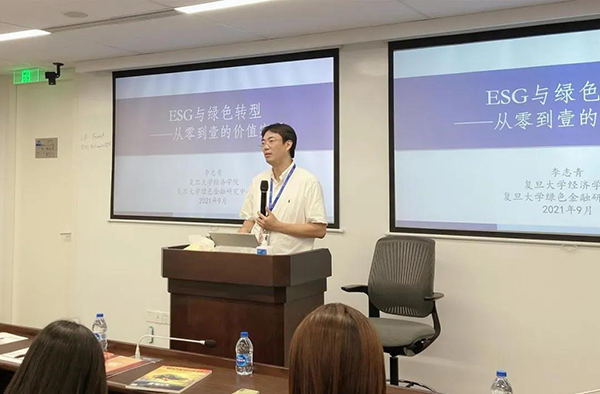
In addition, Teacher Shiyue Yang from the Executive Education Department gave a detailed explanation upon the upcoming course of New Commercial Financial Leadership Camp. By carefully selecting core financial courses and teachers at Fudan University, the course focuses on business practices and forefront fields, and is divided into 8 modules such as the financial system and globalization, Chinese capital market and equity investment, financial investment practices and company finance to help enterprise senior management build a systematic financial knowledge system within 8 months.
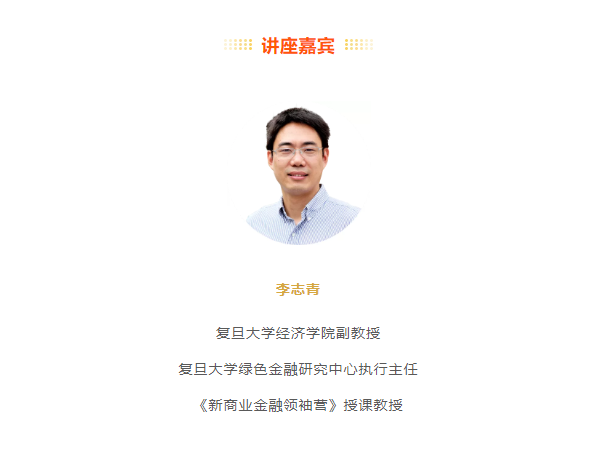
Firstly, Professor Zhiqing Li introduced the development background and implication of ESG. “ESG information disclosure” refers to the environmental (E), social (S) and company governance (G) information in the operation process that a company actively discloses. Before it became popular, people were more familiar with the concept of “social responsibility investment (SRI)”, which integrates personal value orientation and attention to society into investment decisions, considering both investment demands and social influence. Meanwhile, it is also a mode of investment portfolio that choose a company share structure based on ethical and social standards. Under different social backgrounds, the content of SRI has gone through gradual evolution, and formed a measure for investors to improve risk and profit outcomes. Since the 1990s, environmental protection and climate change have gradually become the focus of public attention, and thus it has been increasingly popular to adopt environmental protection as the selection criteria of SRI. In 2006, the Principles for Responsible Investment (PRI) was established, officially bringing forward the concept of environment, society and governance (ESG).
Next, Professor Li made a detailed illustration of how ESG supports green transformation and high-quality development. The “Zero-carbon Development” of peaking carbon emissions and achieving carbon neutrality is the major goal of China’s mid- and long-term green development. To promote the comprehensive green transformation of economic and social development, the gradual disconnection between carbon emissions and economic development is a must. Seeing from the “comparison diagram of the GDP and carbon emissions in Shanghai”, Shanghai’s GDP has been rising steadily with the increase of its carbon emissions slowing down after 2011. This is a positive signal of moving towards the goal of green low-carbon high-quality development.
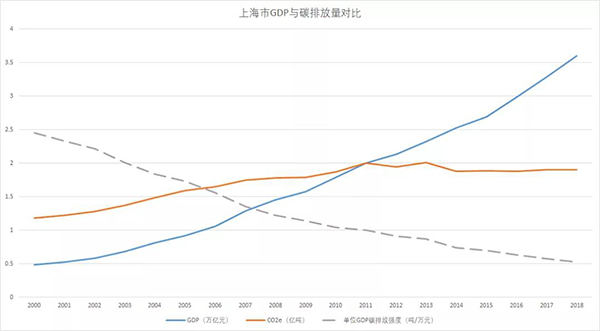
For the sake of peaking carbon emissions and achieving carbon neutrality, China has formulated certain policies and raised a series of requirements in the information disclosure of social responsibilities and company governance by listed companies. So is the ESG performance of an enterprise related to its business performance? According to some scholars’ research, there is a certain positive relativity between ESG performance and stock return. The investment portfolio constructed by CSI 300 constituent stocks with the ESG performance ranking top 100 has a higher investment income than direct investment on CSI 300 index, and the portfolio return of CSI 300 green leading stocks is also higher than that of CSI 300 (Yao Wang, 2018). Professor Zhiqing Li took the example of listed companies in the medical industry, concluding that the industry group with high market value is higher in all the three aspects of the release rate of ESG reports, average score of ESG report quality and average increase rate of share prices compared to industry groups with medium and low market value.
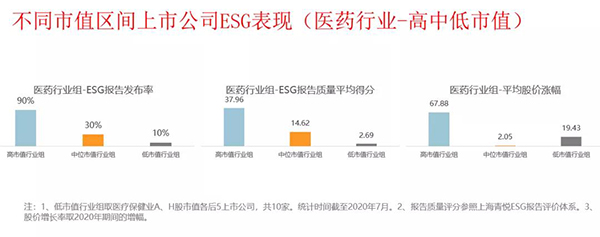
Professor Zhiqing Li explained that there are three types of influencing principles for improper management of ESG issues, “ESG performance directly influencing business cooperation of companies”, “ESG performance drawing high concern of regulatory authorities and affecting core business modes”, and “ESG performance encouraging consumers to boycott business of listed companies”. All these will cause stock price changes of listed companies. With investors paying more attention to ESG, the number of pan ESG index in A-share stocks has been constantly increasing, and public funds are also more actively applying PRI.
At last, Li shared the rating and prospect of ESG. At present, a number of ESG rating institutions provide key information for institutional investors to make ESG investment. Their rating methods may not differ much, but with a certain degree of various understandings of E (environment). In this regard, Li believed that the environmental issues facing western countries are a great deal different from China, so there is no need and no way for us to conform our understandings of the environment with theirs.
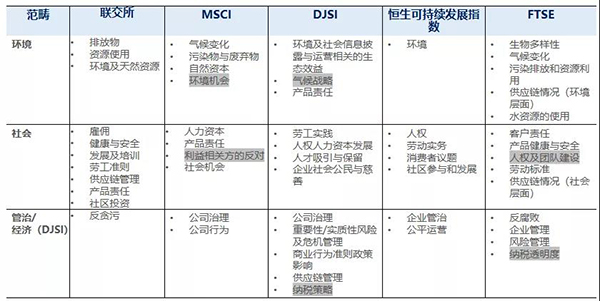
In the form of cases, Professor Zhiqing Li pointed out the two forms of ESG participation of Chinese enterprises at present. One is building an ESG governance framework and proposing a vision; and the other is managing ESG quantitative data for its life cycle systematically and comprehensively, and formulating ESG goals. In general, ESG information disclosure is beneficial to the high-quality development of listed companies in China. The era of “development before governance” and “earning before donation” has long gone. Regulators holding new concepts are taking a larger place, and more entrepreneurs like “Zhang Jian” will emerge in the contemporary market.
The biggest predicament of green development is earning great acclaims but not selling well. The biggest concern of enterprises is doing without return. So, a systematic ESG institutional system needs to be established for enterprises to achieve economic value growth from zero to one, so that more excellent “ESG-driven enterprises” will spring up and a “global ESG benchmark” can be set in various industries. In this way, more companies will recognize its advantages, giving rise to the culture and atmosphere transformation in the entire market.
New Commercial Financial Leadership Camp opens double visions of both the domestic and global financial market for financial investors and senior management of entity enterprises, carrying out in-depth exploration into enterprise investment, financing and strategic management, discussing fintech frontier and policy reform, helping entity entrepreneurs construct financial thinking, and leading financial institutions to better serve entities.